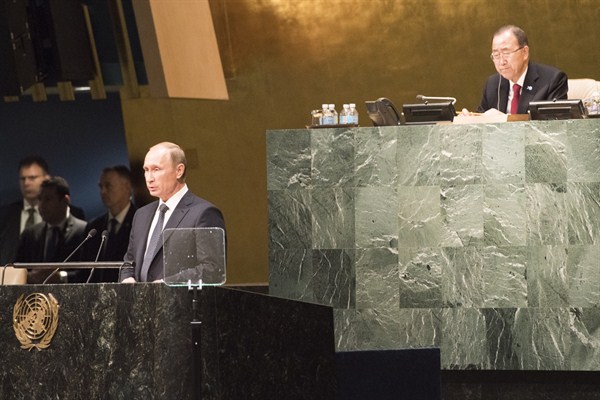The United Nations was stuffed to the gills with world leaders last week, but the real action was elsewhere. While presidents and prime ministers addressed the U.N. General Assembly, three crises escalated dramatically. In Syria, Russian warplanes launched their first strikes on rebel positions. In Afghanistan, the Taliban temporarily seized the northern city of Kunduz, the first major urban center to fall under their control since 2001. In the Central African Republic (CAR), U.N. peacekeepers fought with militias in the capital, Bangui, in an outbreak of violence that forced 40,000 civilians to flee.
Each of these crises has the potential to shake up politics at the U.N., but in very different ways. Russia’s intervention in Syria threatens to deepen existing divisions in the Security Council. By contrast, the Taliban’s resurgence may force the U.S., Russia and China to cooperate more closely to prop up Afghanistan. The latest trouble in CAR has no comparable geopolitical significance. But fresh chaos in that benighted country, where the U.N. has been engaged in fitful peacemaking for nearly two decades, could yet result in a disaster that would bring shame on the organization.
Syria obscured the other crises for most of the week. As of last Monday, some observers still hoped that Russian President Vladimir Putin would use his visit to the U.N. to launch a new initiative to end the Syrian war. He did the reverse, using his appearance at the General Assembly to criticize the U.S. before sending his forces into action. The first Russian airstrikes were timed, most probably deliberately, to overshadow a Security Council meeting on the Middle East. Pundits have concluded that Putin scored a diplomatic triumph by making a confused U.N. dance to his tune.

